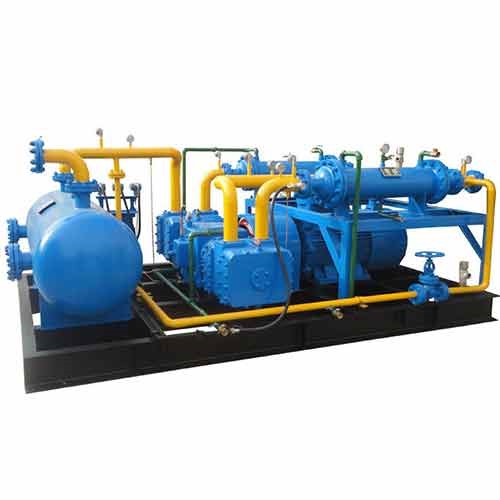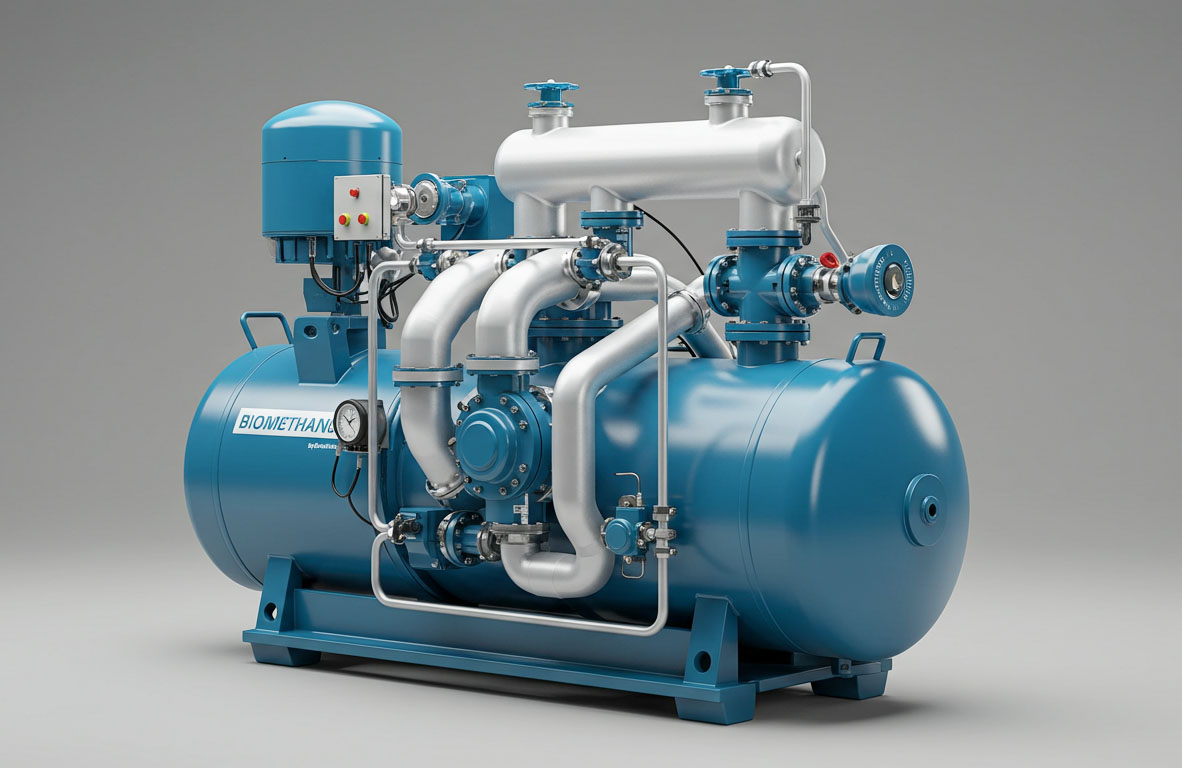Mobile Industrial Air Compressor: Efficient and Reliable Solution for On-Site Operations
Mobile industrial air compressor is essential for many industries that rely on pneumatic tools and equipment. These compressors are designed to be portable and easy to move around job sites, making them ideal for construction, mining, and other industrial applications. With a wide range of sizes and capacities available, there is a mobile industrial air compressor to suit any need.

Types of Mobile top Industrial Air Compressors There are several types of mobile industrial air compressors available on the market today. Reciprocating compressors use pistons to compress air and are ideal for small to medium-sized jobs. Rotary screw compressors are better suited for larger jobs and can operate continuously for extended periods of time. Oil-free compressors are another option, which are ideal for applications where oil contamination is a concern, such as in the food and beverage industry.
Key Features and Specifications When choosing a mobile industrial air compressor, there are several key features and specifications to consider. The compressor’s capacity, measured in cubic feet per minute (CFM), will determine how much air it can produce. The compressor’s pressure rating, measured in pounds per square inch (PSI), will determine the amount of pressure it can generate. Other important features to consider include portability, noise level, and power source.
Key Takeaways
- Mobile industrial air compressors are essential for many industries that rely on pneumatic tools and equipment.
- There are several types of mobile industrial air compressors available on the market today, each with their own unique features and specifications.
- When choosing a mobile industrial air compressor, it is important to consider factors such as capacity, pressure rating, portability, noise level, and power source.
Types of Mobile Industrial Air Compressors
Mobile industrial air compressors come in different types and sizes. Each type has its own strengths and weaknesses, making it suitable for different applications. In this section, we will discuss the three most common types of mobile industrial air compressors: rotary screw compressors, reciprocating compressors, and centrifugal compressors.
Rotary Screw Compressors
Rotary screw compressors are one of the most common types of mobile industrial air compressors. They are known for their high efficiency and reliability. These compressors work by compressing air between two rotors, which increases the pressure and volume of the air. Rotary screw compressors are ideal for applications that require a continuous supply of compressed air, such as sandblasting, painting, and pneumatic tool operation.
Rotary screw compressors are available in different sizes and configurations. They can be mounted on a truck, trailer, or skid, making them easy to transport to different job sites. Some rotary screw compressors also come with built-in aftercoolers and dryers, which help to remove moisture from the compressed air.
Reciprocating Compressors
Reciprocating compressors, also known as piston compressors, are another common type of mobile industrial air compressor. They work by compressing air using a piston that moves back and forth inside a cylinder. Reciprocating compressors are known for their high pressure output and durability. They are ideal for applications that require high pressure, such as drilling, cutting, and impact wrench operation.
Reciprocating compressors are available in different configurations, including single-stage and two-stage compressors. Single-stage compressors are suitable for applications that require low to medium pressure, while two-stage compressors are ideal for applications that require high pressure. Reciprocating compressors can also be mounted on a truck, trailer, or skid for easy transport.
Centrifugal Compressors
Centrifugal compressors are the least common type of mobile industrial air compressor. They work by using a high-speed impeller to accelerate the air, which increases the pressure and volume of the air. Centrifugal compressors are ideal for applications that require a large volume of compressed air, such as cooling and refrigeration.
Centrifugal compressors are available in different sizes and configurations. They can be mounted on a truck or trailer for easy transport. However, they require a lot of power to operate, which makes them less efficient than rotary screw and reciprocating compressors.
Key Features and Specifications
When it comes to mobile industrial air compressors, there are several key features and specifications that are important to consider. These include pressure and flow rates, power sources, portability, and size. Here is a breakdown of each of these factors:
Pressure and Flow Rates
One of the most important factors to consider when selecting a mobile industrial air compressor is its pressure and flow rates. The pressure rating of a compressor is measured in pounds per square inch (PSI) and determines how much air pressure the compressor can generate. The flow rate, measured in cubic feet per minute (CFM), determines how much air the compressor can deliver at a given pressure. It is important to choose a compressor with a pressure and flow rate that is appropriate for the specific application.
Power Sources
Mobile industrial air compressors can be powered by a variety of sources, including gasoline, diesel fuel, or electricity. Some compressors are designed to be powered by a vehicle’s engine, while others have their own built-in engines. It is important to choose a compressor with a power source that is appropriate for the application and available resources.
Portability and Size
Another important factor to consider when selecting a mobile industrial air compressor is its portability and size. Some compressors are designed to be easily transported from one location to another, while others are more stationary. The size of the compressor is also an important consideration, as it determines how much space it will take up and how easy it will be to store and transport. It is important to choose a compressor with a size and level of portability that is appropriate for the specific application.
Overall, when selecting a mobile industrial air compressor, it is important to consider a variety of factors, including pressure and flow rates, power sources, portability, and size. By carefully evaluating these factors and selecting a compressor that is appropriate for the specific application, businesses can ensure that they have the compressed air they need to get the job done.
Applications and Uses
Mobile industrial air compressors have a wide range of applications and uses across various industries. Here are a few of the most common applications of mobile industrial air compressors:
Construction Industry
Mobile industrial air compressors are widely used in the construction industry for powering pneumatic tools, such as jackhammers, nail guns, and sandblasters. They are also used for powering air-operated pumps and for providing compressed air for concrete spraying and shotcreting. Additionally, mobile industrial air compressors are used for inflating tires and for cleaning construction sites.
Manufacturing Sector
The manufacturing sector is another industry that relies heavily on mobile industrial air compressors. These compressors are used for powering pneumatic tools, such as grinders, sanders, and drills. They are also used for powering air-operated pumps, for providing compressed air for conveyor systems, and for cleaning manufacturing facilities.
Automotive Applications
Mobile industrial air compressors are essential in the automotive industry for powering air tools, such as impact wrenches, ratchets, and drills. They are also used for inflating tires and for providing compressed air for sanding and painting vehicles in auto body shops. Additionally, mobile industrial air compressors are used in automobile repair shops for powering various air tools.
In summary, mobile industrial air compressors are versatile and essential tools that are widely used across various industries. From construction to manufacturing to automotive applications, these compressors provide compressed air for powering pneumatic tools, air-operated pumps, and for a wide range of other applications.
Maintenance and Safety

Routine Maintenance
To ensure that a mobile industrial air compressor is running at peak efficiency, routine maintenance is essential. The following are some of the routine maintenance tasks that should be performed:
- Check the air filter regularly and clean or replace it as necessary. A dirty air filter can cause the compressor to work harder and use more fuel.
- Check the oil level and condition. Change the oil as recommended by the manufacturer.
- Check the belts for wear and tension. Replace or adjust them as necessary.
- Inspect the hoses and fittings for leaks. Repair or replace any damaged parts.
- Drain the moisture from the tank regularly. Moisture can cause rust and damage to the tank and other components.
By performing these routine maintenance tasks, a mobile industrial air compressor can operate at maximum efficiency and last longer.
Operational Safety Guidelines
Safety is a top priority when working with a mobile industrial air compressor. The following are some operational safety guidelines that should be followed:
- Always wear appropriate personal protective equipment, such as eye and ear protection.
- Do not exceed the maximum pressure rating of the compressor. Check the pressure gauge regularly.
- Do not use the compressor in a confined space without proper ventilation.
- Do not operate the compressor near flammable materials or in areas where there is a risk of explosion.
- Turn off the compressor and disconnect it from the power source before performing any maintenance or repairs.
By following these operational safety guidelines, the risk of injury or damage to the compressor can be minimized.


